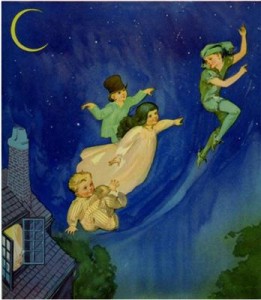 Social Studies, Uncategorized
Social Studies, Uncategorized  6 Comments
6 Comments Priceless: the Nordstrom follow-up
This post is a follow-up to the one I wrote on Sunday, 29 April 2012, after a nightmarish customer service experience at the Mall of America Nordstrom store. If you haven’t read that account, what follows will make much more sense if you do so first.
I held off writing a follow-up until I felt like I’d reached as much of a resolution as I was going to. I reached that point two weeks later. And I really wanted to come back to you and say that my in-store experience was a fluke, that Nordstrom’s reputation for good customer service really was the norm.
I can’t do that.
In the minor Twitterstorm that blew up following my initial blog post, a member of Nordstrom’s social media customer service team contacted me and invited me to Direct Message with her about my experience. She had also seen the customer service complaint that a good friend submitted directly to the Nordstrom website, with a link to my post. I summed up the unnecessary pain, humiliation, and frustration to which I’d been subjected; she replied with very sincere apologies on behalf of the company she represents, for which I was grateful. She said that she hoped we could work together to find a resolution that would repair my impression of the company, to which I replied, among other things, that I would “be content with a good fitting with someone nice.” I asked if there were people at Nordstrom Rack who could also do that job. She said she would contact the MOA Rack location and inquire on my behalf. She also indicated that she would be forwarding my story up the chain of command, as an object lesson in customer service.
When she got back to me, a few days later, she said that, while the Rack doesn’t usually do bra fittings outside of special events for that particular purpose, there were trained sales associates who could do that for me. I expressed concern that, if they didn’t do fittings regularly, perhaps they wouldn’t do it as well as someone at the full-line store. Time and again, I was steered back to an option that took me to the Rack–“I’m sure you’d feel more comfortable there,” “I can imagine you’d rather not go back to the full-line store,” etc. It’s hard not to see those efforts as being related to my initial price point of $30-40, though I’d reiterated several times that, if I received good service and found a sturdy, lasting product that cost a little more, I’d be willing to spend beyond my range. Those statements were consistently ignored, and I feel the class warfare side of this whole fiasco more keenly than ever. I’m only welcome in the Rack; I shouldn’t even bother crossing the boundaries of the upscale store.
(When I finally received an email apology from the general manager of the MOA Nordstrom, on Thursday, it wasn’t in response to the promised escalation, but rather my friend’s online complaint. She, too, offered a “private fitting”–to which I could only say, “What, do you usually do them in the food court?”–but reiterated the statement that I “might prefer not to come back” to their store, and get the fitting at the Rack.)
Moreover, the offer of a fitting was consistently phrased as “you can call anytime and speak to this person, to set up a fitting.” The onus of getting what I was asking for was placed entirely on me. Now, I understand the practical issue of me being the one with the schedule that needs to be worked around–I get that. But there’s no good reason at all why I shouldn’t have had a phone call from someone–anyone–to apologize “in person” and ask me when I would be available for an appointment. This seems petty, when I write it out, but there isn’t a moment of my day that isn’t busy, and I’m not likely to take a moment to make a phone call for something selfish when other people need things done.
The longer I went without resolution, and after discussions with my therapist and friends, the more I felt that it wasn’t too much for me to ask to leave the store with what I’d come in for–an affordable, comfortable bra. I replied to the offer of a private fitting with the uncommonly assertive (at least, for me) suggestion that a fitting was basic customer service that they (ostensibly) offer to anyone who walks in off the street, free of charge, and that that wasn’t sufficient restitution for the damage done. I said I wanted an affordable, comfortable bra, and whether they accomplished that with a discount coupon or gift card was up to them.
Anyone who knows me knows that making this demand is A Big Deal for me. I’ll insist on cosmic justice, plus a moon to hang their coat on, for anyone else, but I just don’t ask for things for myself. I won’t even send food back to a restaurant kitchen unless it’s thoroughly inedible. This comes directly from lack of self-esteem–I’ve got no illusions about the flimsiness of my justification. It took me a full 12 hours to hit the Send button on that email. In some ways, I feel like that accomplishment was the real outcome of the harassment I suffered. (Deep gratitude to Cam, Jess, M, Panda, Josh, Elizabeth, and John for their editing and affirmations.)
That demand was, however, apparently in vain. Here’s the response I got from the Nordstrom rep:
At Nordstrom we feel that you can’t put a price on good customer service… Since you indicated in one of your messages to our social media team that you’d “be content with a fitting appointment arranged with someone nice” to bring resolution to this situation, we are happy to arrange this. Please let us know a day and time that would be convenient for you and if you’d like for your fitting to take place at our full-line store or at the Rack. We will work closely with you to ensure that you are fitted properly and to assist you in finding a quality product in a price point that you are comfortable with.
Following that reply, I received a request for my phone number so the manager of the MOA location could call and apologize in person. I hoped that she might have more leeway to accomplish what the social media rep couldn’t, but her tune remained the same. said offered me her apologies–though they struck me more as “we’re sorry we missed a chance to earn a customer,” rather than, “we’re sorry you were treated so inhumanely”–and an appointment with the stylist who fitted her for her bras. She also offered to have to have her meet me at the Rack. When I said that I didn’t think it was out of line to ask that, if the bra we found that fit me best turned out to be beyond my price range, that they step in to make it affordable, she responded with the “no price on good customer service line,” making it apparent that it’s company policy. She said, “I mean, people could come in and be offended all the time! If we handed out gift cards left and right, we’d go out of business!” To which I replied, “But I didn’t come in to be offended, and my experience really happened.”
I almost caved–I’ll be totally honest. I wanted to please and relieve her at least as much as she wanted to do so for me. But I drew up my last bit of gumption in the end and told her that, while I appreciated her time, her apology, and her offer, I wasn’t going to give a single dollar to a company that values their bottom line more than their customers. She sounded very put out, and the cheer drained from her voice. When someone ends a call with “Well, I’m sorry that’s how you feel,” you know you managed to stick to your guns.
So it comes down to this: Nordstrom’s quality of customer service is priceless to them. On the positive side, it means that they (are supposed to) care more about customer satisfaction than the sale. That’s good, and should be the service goal of every for-profit organization. On the flip side, it means that bad customer experiences aren’t worth anything tangible to them. They don’t assign a price to satisfaction, so when they fail, they still win, because mistakes cost them nothing, plus they reap the benefits of an object lesson. Nordstrom is not willing to negotiate with terrorists. And they see everyone who walks through their door as both potential sale, and potential bomber. It’s more than a little weird to think that they see customers as people “trying to get something out of them.” They do–you’re a freaking STORE.
Here’s my final reply:
Nordstrom, I will never darken your door or put a dime in your cash registers. Every time I hear someone suggest Nordstrom as a destination, I will tell them how I was treated.
I am not rich or powerful. But I have friends. My friends are having weddings and babies. My friends are your target demographic. My friends are fiercely loyal, and believe in the worth and dignity of every person, which apparently doesn’t fit with your company’s values. And they talk to people, too.
For 15 minutes of your time and a half-price bra, you could’ve had a whole lot of goodwill. Instead, you get 15 minutes of a whole bunch of people’s time, and a PR disaster. Be sure you tally that on your bottom line.

